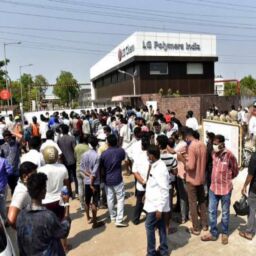“Stressed? Clinically depressed? Sad? Mental health not in good shape? Well, have some warm water, sleep a bit, wake up early, go for a walk you’ll be fine. It’s just all in your head, nothing’s real, don’t make a big fuss about it.” Isn’t that how people all around the world and especially India deal with issues related to mental health?
INTRODUCTION
Mental health has been rightly defined by WHO as “A state of well-being in which the individual realises his or her own abilities, can cope with the normal stresses of life, can work productively and fruitfully, and is able to make a contribution to his or her community.” It also includes having stable relationship with other people and being able to retain and process information without major difficulties. We often fail to realise the seriousness of the issue and mistake it to be just a phase of life.
MENTAL HEALTH STIGMA
People often look down upon those who suffer from mental health disorder or try to seek help, family shushes the child from speaking out loud about his struggle to cope up with stress. They would prefer visiting a pandit and chant mantras on him instead of taking him to a professional counsellor and getting checked. We have been conditioned in a way to supress and perhaps distract ourselves instead of focussing on it and getting it medically treated. They don’t get any validation from their own near ones let alone the society.
Many people around the world completely deny the very idea of mental health or they cannot possible be a patient of it. It is easy to talk about your leg fracture but arduous to confess about your panic attack. This could be the result of awareness or understanding the very concept.
COVID AND MENTAL HEALTH – IMPACT ON CHILDERN AND THE ADULTS
The outbreak of the novel corona virus has done nothing but added fuel to the fire. The risk of increase in mental health issues can be seen in not only adults but children as well. Confined in the four walls of the room has drastically affected the mental health and growth of the child. Not being able to meet friends, socialise, learn new things and channelize the pent-up energy that a kid has. The Covid-19 has enforced the children to attend their classes online which makes them sit 6 to 8 hours in front of the screen. Not only that, all the study material are available online that adds up few more hours of screen time. Children have been found to suffer from severe headache, restlessness, frustration, lack of concentration, change in eating habits etc.
Not every work could be done from home, not every person can afford work-from-home setup. A lot of people have lost their jobs that has added to so much mental pressure on people leading to anxiety, panic attacks, headaches, further resulting to other physical disorders like kidney and heart issues. The fear of not having a stable source of income has drastically affected not only the bread earner but also the family. People who are away from their families are struggling to keep up with themselves and are following into depression due to loneliness.
Reports have shown how the cases of domestic violence and marital rapes increased in the lockdown as there isn’t any way women (in most cases) can seek help as everyone is concerned about their own health that might be at risk by meeting people. They have no other option but to endure the mental and perhaps physical torture on regular basis.
LAWS FOR MENTAL HEALTH
The modern judicial system is highly influenced by the English Common Law. Mental health was just taken into consideration for the soul reason of protecting the society. However, things have drastically changed now. The Constitution of India in Article 21[1] clearly mentions that no person shall be deprived of life and liberty, with few exceptions. The right to life has been explained further to include the right to health as well, to enable the mentally ill people seek the much-required medical assistance and validation from their home and society.[2]
Back in 1982, the Government of India launched the “National Mental Health Programme” (NMHP)[3]“keeping in view the heavy burden of mental illness in the community, and the absolute inadequacy of mental health care infrastructure in the country to deal with it.”[4] The program has been amended multiple times as it was criticised a lot because of the provisions that weren’t up to the mark.
MENTAL HEALTH ACT OF 2017
The mental health care program of 2017 was finally looked as a reform in the department of medical healthcare. India ratified the UNCRDP, that is, “United Nation Convention of the Rights of Persons with Disability” on October 2007 and realised that the already existing mental health law of 1987 needed more amendments to align with the UNCRPD. It lacked to provide protection and promotion of the human rights. Their main objective was to provide care and services to the sufferer.
MENTAL HEALTH LAWS DURING BRITISH COLONIZATION
The treatment of mental health people in asylum was introduced by the British during its colonization. In 1958, a large number of laws were passed to tend to the medical needs of the mentally ill people, they were:
- The Lunacy Act of 1858 (Supreme Court)
- The Lunacy Act of 1858 (District Courts)
- Indian Lunatic Asylum Act of 1858
- The Military Lunatic Act of 1877[5]
CONCLUSION
It’s easy for a person to talk about his lungs disorder in front of people rather than speak about his suicidal tendencies. It’s easy to get a exemption in your work department or college for having a viral rather than continuous panic attacks, which could actually lead to death, if not tended on time. India was suffering from the mental health epidemic even before the pandemic took place. The WHO report clearly states that 15% of the total health conditions around the world are somewhat linked to mental illness and India has been topped the list.[6] The Mental Health Act still needs amendments to be able to tackle the growth of suicide cases during the pandemic. The legal health care department needs to make sure that the existing laws are being implemented as they should be.
We all are suffering to some sort of stress and mental pressure that may or may not have affected one’s physical health too. Instead of putting labels and raising fingers to the person, we shall try to be more accepting, inclusive and give validation to the person that he desperately wants.
Author(s) Name: Iva Mehta (Student, NMIMS Bangalore)
References:
[1] India Const., art. 21.
[2] Manisha T. Karia, Urgent need for reforms in law and policy for Mental health in India, Bar and Bench (June 21, 2021, 8:50 PM), https://www.barandbench.com/columns/urgent-need-for-reforms-in-law-and-policy-for-mental-health-in-india.
[3] National Mental Health Programme, National Health Portal, https://www.nhp.gov.in/national-mental-health-programme_pg (last accessed June 22, 2021).
[4] Ibid.
[5] Mental Health Laws in India, Legal Aid and Support Centre, https://legalaid.nmims.edu/mental-health-laws-in-india/ (last accessed June 19, 2021).
[6] Supra Note 2.
















